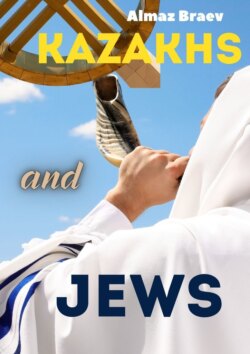Читать книгу Kazakhs and Jews - Алмаз Браев - Страница 8
Chapter 7
ОглавлениеUnusual laws. 613
«The closer a state is to falling, the more laws it has.»
Cicero
«The ruin is not in the closets, but in the heads.»
Bulgakov. A dog’s heart
Formal laws and regulations are laid down in codes.
There are informal laws. They are more effective in conservative communities, among people who adhere to tradition.
There are many informal laws. But much less than formal ones. However, it is believed that the more cultured and civilized a people are, the more formal laws they have.
What happens if the conservative people «with traditions» have too much civilizational formality, and the laws do not work, after all, total corruption, mafia, and crime?
What is an informal relationship? It’s when you’re to me, I’m to you. You and I are relatives, brothers – in – law, and classmates – we can always come to an agreement.
What to do? How do you avoid «you to me, I to you»? How do you stop writing new laws that don’t work in such an environment?
This means that there is no need to chase after «advanced countries»
But let’s think about it. Let’s look back.
Let’s compare it.
To begin with, the history of all peoples is connected with religion. Moreover, the economic side, or what people were doing, directly impacted spiritual life.
We Kazakhs are Muslims. Jews are adherents of Judaism. This, for example.
The nomadic tribes of Central Asia did not immediately become Orthodox. The adoption of Islam stretched among the Nomads for five hundred years (more than five centuries). Moreover, the nomadic Turks were the main rivals of the same nomadic Arabs before the fall of the Western Turkic Khaganate. Well, intraspecific rivalry is much more cruel than interspecific rivalry – it has long been known if such a strange similarity of a nomadic «species» is appropriate here at all. In those days, the Arabs and Turks had cattle breeding as their primary occupation. Both the Nomadic Arabs and the Nomadic Turks had something to share. The question immediately creeps up: isn’t that why almost all Turks became Muslims? The Western Turkic Khaganate collapsed like the USSR. (When all the newly minted presidents who appeared after the collapse of the USSR republics immediately proclaimed the direction of «democracy.» They built communism, and afterward, they turned 180 degrees. This is all because the winners always dictate the direction: in the case of the USSR, it is the USA; in the competition of nomads, it is the Arabs). Thus, the Arabs, in the form of winners, first rode to the oases of Transoxiana to control the caravans with goods. Then, they took care of the rest of the nomads so that they would not rob passing caravans out of savagery and indiscipline. Everything is logical.
Of course, faith is of great importance already because it determines the future. But this is not our topic: although Kazakhs and Jews come into contact with each other spontaneously and indirectly. Spontaneity and mediation are already in the fact that Kazakhs did not directly contact Jews until the 21st century. However, due to the development of «democracy» and market relations after the collapse of the USSR, they joined the global liberal market trend. There is no need to remind you who the inventor of banking is. The fact that Kazakhs today trade everything (primarily natural resources) and do not roam «according to their grandfather’s habit» is a spontaneous and age-old mediation. As befits all conservative peoples, Kazakhs have never recognized money as the meaning of life. Kazakhs got acquainted with money, and now monetary relations, we can say recently, in the 19th century so-so, in the 20th century in the form of a Soviet salary, and only in the 21st century in the form of a bank loan and a means of enrichment.
